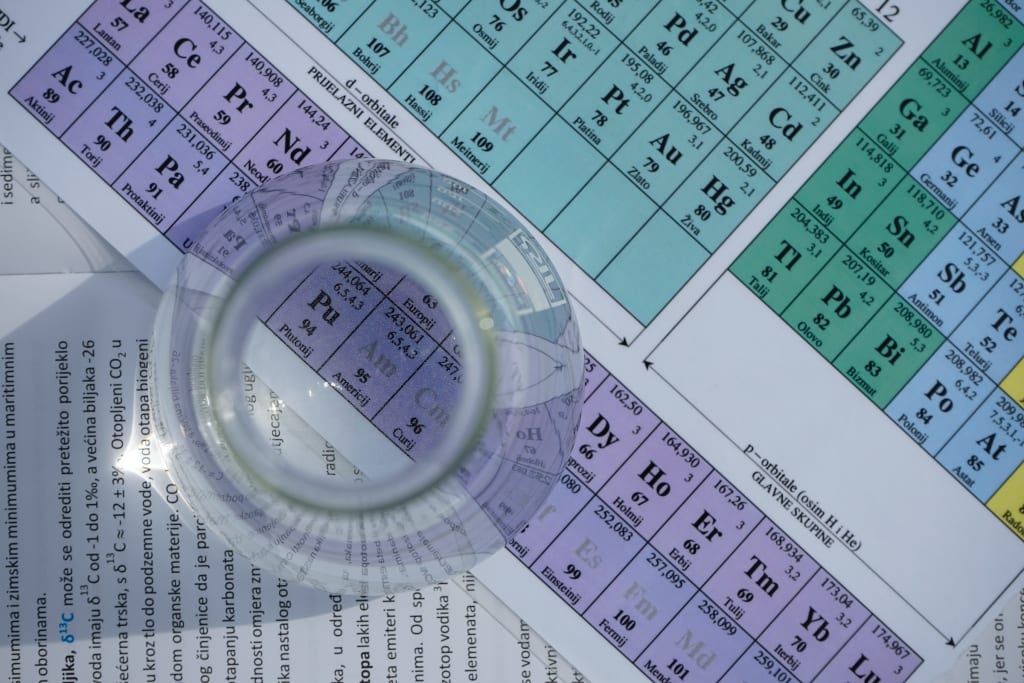The Intricacies and Applications of Analytical Chemistry
Decoding Matter

Introduction
Analytical chemistry, a dynamic and foundational branch of the chemical sciences, plays a pivotal role in unraveling the mysteries of matter. This discipline is dedicated to the identification and quantification of the components of a substance, contributing significantly to scientific understanding, technological advancements, and practical applications across various industries. In this comprehensive exploration, we will delve into the principles, methodologies, applications, and evolving significance of analytical chemistry in the context of contemporary scientific inquiry.
Principles of Analytical Chemistry
Analytical chemistry is guided by a set of fundamental principles aimed at ensuring the precision, accuracy, and sensitivity of analyses. These principles underpin the various methodologies employed in the discipline:
Quantitative Analysis:
Quantitative analysis involves determining the amount or concentration of a specific chemical component within a sample. This is achieved through meticulous measurements, often employing techniques such as gravimetry or volumetry. Gravimetric analysis, for instance, relies on the measurement of mass changes to quantify a substance.
Qualitative Analysis:
In contrast, qualitative analysis focuses on identifying the components present in a sample. Spectroscopy, chromatography, and mass spectrometry are instrumental in qualitative analyses, providing detailed information about the chemical composition of a substance. Spectroscopy techniques, including infrared spectroscopy (IR) and nuclear magnetic resonance (NMR), offer insights into molecular structures, enabling precise identification.
Instrumental Techniques:
Modern analytical chemistry heavily relies on advanced instrumentation to achieve high precision and sensitivity. Gas chromatography (GC), liquid chromatography (LC), and mass spectrometry (MS) are among the instrumental techniques widely used. Gas chromatography separates volatile components in a mixture, while mass spectrometry identifies and quantifies these components based on their mass-to-charge ratios.
Quality Assurance:
Quality assurance is paramount in analytical chemistry. It involves rigorous validation of methods, calibration of instruments, and adherence to standardized protocols to ensure the reliability and reproducibility of results. Certified reference materials and internal standards play a crucial role in verifying the accuracy of analytical measurements.
Applications of Analytical Chemistry
Analytical chemistry finds applications in a myriad of fields, each benefiting from its unique methodologies and insights. Some notable applications include:
Environmental Analysis:
Environmental monitoring relies on analytical chemistry to detect and quantify pollutants in air, water, and soil. Gas chromatography-mass spectrometry (GC-MS) is frequently employed to analyze volatile organic compounds (VOCs) in air, while high-performance liquid chromatography (HPLC) can determine pesticide residues in water.
Pharmaceutical Analysis:
The pharmaceutical industry relies on analytical techniques to ensure the quality, safety, and efficacy of drugs. High-performance liquid chromatography (HPLC) and mass spectrometry are employed for pharmaceutical analysis, facilitating the identification and quantification of active pharmaceutical ingredients (APIs) and impurities.
Food and Beverage Industry:
Analytical chemistry is integral to quality control in the food and beverage industry. Techniques such as nuclear magnetic resonance (NMR) spectroscopy and chromatography assist in identifying and quantifying components in food products, ensuring compliance with safety standards.
Forensic Analysis:
Forensic science utilizes analytical chemistry to solve crimes and establish evidence. DNA analysis, chromatography, and spectroscopy are employed to identify and characterize substances relevant to criminal investigations, providing critical information in court proceedings.
Clinical Chemistry:
In the realm of healthcare, clinical chemistry employs analytical techniques to diagnose and monitor diseases. Blood tests, urine analysis, and molecular diagnostics rely on methods such as immunoassays, chromatography, and mass spectrometry to detect and quantify biomarkers indicative of various medical conditions.
Significance of Analytical Chemistry
The significance of analytical chemistry extends far beyond the confines of laboratory settings. Its impact is felt across diverse domains, influencing scientific research, industry practices, and everyday life. Several key aspects underscore its overarching importance:
Advancing Scientific Knowledge:
Analytical chemistry contributes significantly to the advancement of scientific knowledge by providing insights into the composition and behavior of matter. Through meticulous analysis, researchers gain a deeper understanding of chemical processes, enabling the development of new theories and contributing to the broader scientific discourse.
Quality Control and Assurance:
Industries rely on analytical techniques to maintain the quality and safety of products. Whether in the production of pharmaceuticals, food, or consumer goods, analytical chemistry ensures that materials meet stringent regulatory standards. This not only safeguards consumer well-being but also fosters trust in products and brands.
Environmental Protection:
Analytical chemistry is a crucial tool in the ongoing effort to monitor and mitigate environmental pollution. By identifying and quantifying pollutants, researchers and environmentalists can assess the impact of human activities on ecosystems, guiding policies and interventions aimed at preserving the planet's health.
Innovation in Technology:
The continuous evolution of analytical techniques contributes to technological innovation. Cutting-edge instruments and methodologies developed in analytical chemistry find applications in diverse fields, from materials science to biotechnology, driving progress and pushing the boundaries of what is possible.
Healthcare Advancements:
In the field of healthcare, analytical chemistry plays a central role in diagnostics and treatment. Precision medicine, personalized healthcare, and advancements in medical research are all facilitated by analytical techniques that allow for the accurate identification and quantification of biomolecules and pharmaceutical compounds.
Global Challenges and Solutions:
The global challenges of our time, such as climate change, pollution, and public health crises, require informed decision-making based on accurate data. Analytical chemistry provides the tools necessary to understand and address these challenges, contributing to sustainable solutions and evidence-based policymaking.
Conclusion
Analytical chemistry stands as a linchpin in the scientific landscape, bridging theory and application with precision and insight. Its methodologies, from classical techniques to state-of-the-art instrumentation, continue to evolve, propelling scientific discovery and technological innovation. As we navigate an era of unprecedented challenges, the role of analytical chemistry in decoding the complexities of matter is more crucial than ever. By pushing the boundaries of what we can observe and understand, analytical chemistry remains a cornerstone of scientific inquiry, shaping our understanding of the world and providing practical solutions to pressing global issues.






Comments (1)
This is a great work you can join my friends and read what i have just prepared for you.